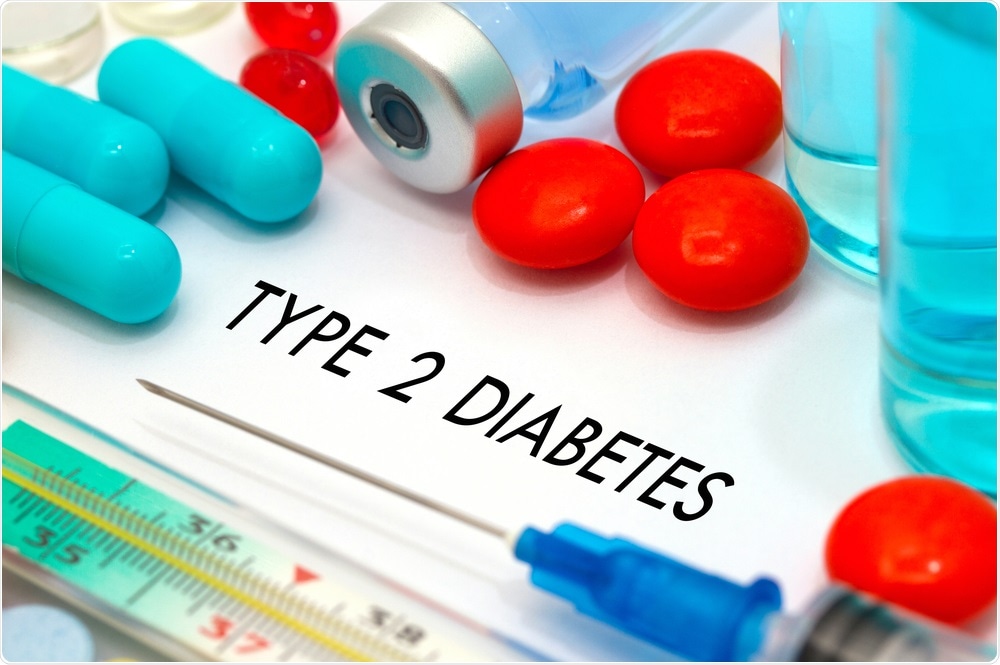A recent study has proposed that taking an extremely low-calorie whey protein microgel shot 15 minutes before a meal decreases post-meal blood sugar spikes and enhances the body’s insulin response (which clears glucose in the blood) in individuals with type 2 diabetes.

Image Credit: Green Apple/Shutterstock.com
The study was introduced at the Annual Meeting of the European Association for the Study of Diabetes (EASD), held online from September 27th to October 1st, 2021.
Whey is one of the principal proteins present in dairy products and helps increase the production of a gut glucagon-like peptide (GLP-1)—a hormone inducing insulin production—which in turn decreases blood glucose rise following meals. But using it regularly as a natural dietary supplement is restricted by the need for a relatively high protein dose with high caloric content, and the demand to take it 30–60 minutes prior to a meal.
The scientists created novel “micelle” technology that enables whey protein to be more quickly available for the body so that it can be consumed at a lesser dose (10 g, 40 kcal) 15 minutes prior to a meal.
The research encompassed 26 individuals (14 women of average age 62 years) with well-controlled type 2 diabetes, some of them consuming metformin (an oral diabetes medication).
The researchers randomized them to receive either the novel low dose whey protein microgel shot (10 g, 40 kcal) in 125 mL of water or placebo (125 ml of water). This was followed by a pizza meal after 15 minutes (622 kcal, 29 g protein, 22.6 g fat, 72.6 g carbohydrates)—designed to create a sufficient post-meal glucose spike.
Blood samples were drawn 15 minutes prior to the meal, at the time of whey protein or placebo drinks consumption, and also at fixed intervals over 4 hours after the meal.
A week after their first study visit, the participants were asked to repeat the trial with the alternate treatment (placebo or the whey protein microgel shot). The crossover design of the trial indicates that the research was statistically well-powered in spite of the small number of participants.
The scientists identified that during the 2-hour post-meal duration, the whey protein group had reduced glucose levels (by 22%) when compared to the placebo, with a consistent decrease during late phases (between 2 and 4 hours after the meal). Moreover, both insulin response and GLP-1 responses were considerably greater (by 61% at 1 hour and 66% at 2 hours, respectively) in the whey protein group.
The responses for both peptide-YY (PYY) and glucose-dependent insulinotropic polypeptide (GIP) that also triggers insulin production were equal between the placebo and whey protein shot. No adverse events were reported in the study.
Our promising results support the use of this pre-meal soluble whey protein microgel as an additional option to improve both the early insulin response and GLP-1 response that is usually lacking in type 2 diabetes, particularly in more advanced stages, and to help control blood sugar surges that are linked to health problems such as cardiovascular disease, cancer, kidney failure, and eye damage.”
Dr Odd Erik Johansen, Study Lead Author, Nestle Health Science, Switzerland
“This trial provides us with a really good stepping stone for a longer-term clinical trial to determine the full translational metabolic impact of this natural novel whey protein shot are long lasting.”
The researchers mention different limitations, including that the research was small and pilot in nature, carried out at a single center in the United States. Most of the research participants were white Caucasians, and hence the observations cannot be generalized to all ethnic groups in other countries.